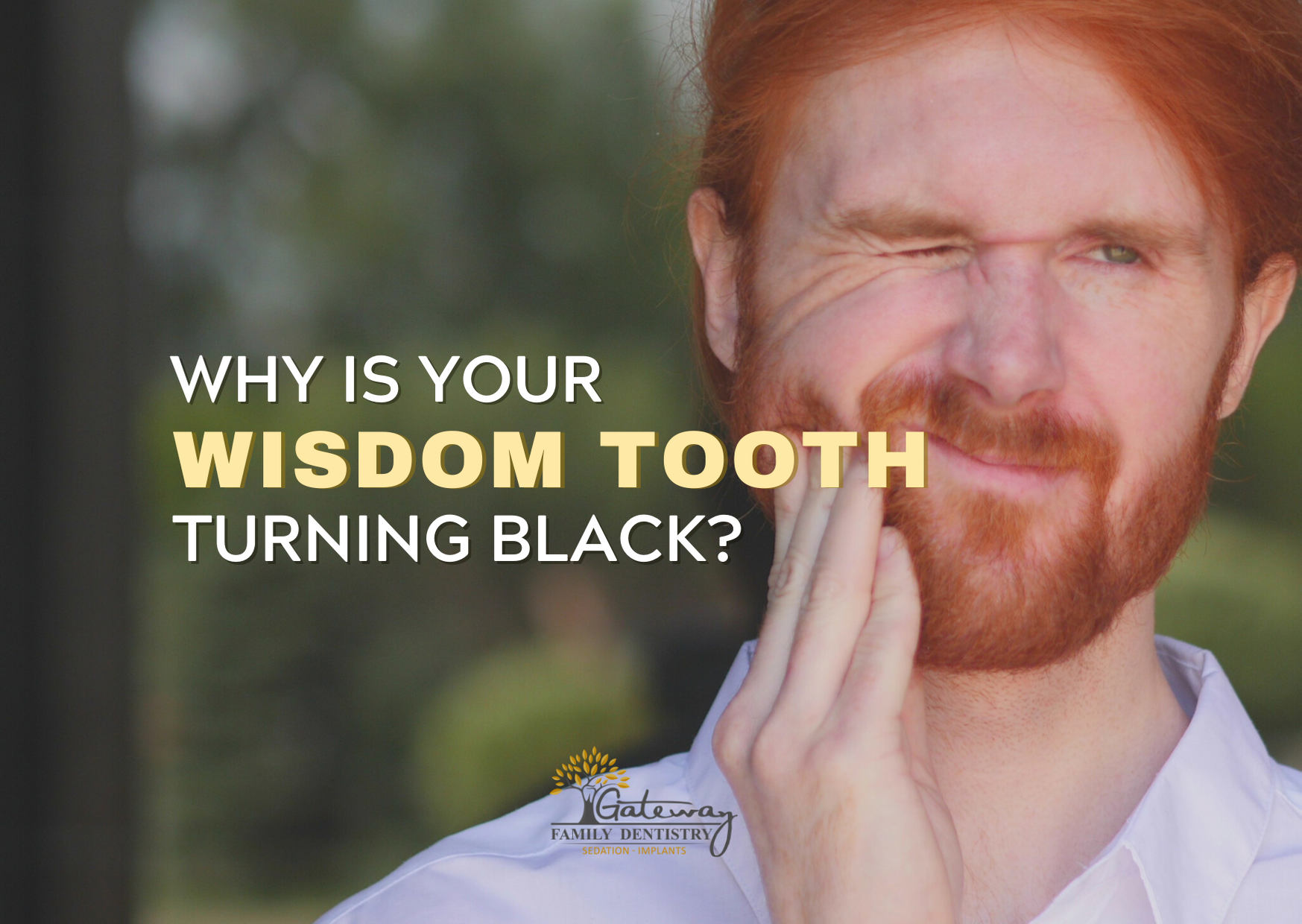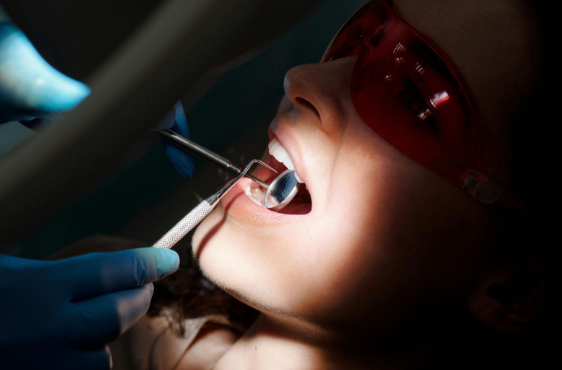Gateway Family Dental Blog

From time to time, the food and drinks that we enjoy can leave bacteria on the surface of our teeth. Despite regular cleaning, some bacteria may be stubborn and end up causing teeth to turn slightly yellow or gray. Now, that may not be such a big problem as long as you are cleaning your teeth.
However, in some cases, wisdom teeth may start turning black. The black color should be a red flag since it is a sign of a possible underlying condition. Do not hesitate to visit your dentist if you notice such a problem.
Here are some reasons and ways to help prevent and treat discoloration on your teeth.
Why Is Your Wisdom Tooth Turning Black?
To understand the causes of black wisdom teeth, we put them into two categories:
● Effects of an impacted tooth
● External causes
For an impacted tooth, the damage may be too great by the time you notice a black spot on the surface. Decays and cavities or pulp infections can cause black teeth surfaces too. The effect does not show immediately after the onset of the infection. It takes time, but you may notice the warning signs that the tooth's surface gives if you look closely.
External causes may include:
● Stains from foods and drinks that you consume
● The build-up of tartar
● Or other damaging factors
Ingesting highly pigmented food and drinks such as coffee is one of the major culprits in staining. Smoking and excessive use of certain tobacco products is another potential culprit.
Ways to help prevent stains and discoloration on your teeth:
● Stick to a fluoride toothpaste
● Brush your teeth at least two times every day
● Regulate your consumption of foods with sugar
● Develop a habit of flossing after every meal
● Reduce or avoid intake of too much dark food and beverages where possible
It can be quite a challenge to cut or limit our exposure to products and foods that stain our teeth, but if you can do so, it offers lots of benefits to your oral health.
What Are the Possible Treatment Options?
Whether it is possible to treat blackened wisdom teeth depends on the cause. If the cause is staining, a professional dentist can clean the surface of the teeth using specialized equipment. Some people try teeth whitening products commercially available, but their effectiveness can vary, and the results are temporary.
In cases where internal problems are causing the teeth to turn, the dentist will walk you through your available options and determine if excising the tooth would be the best for you. A spreading infection can damage other teeth, weaken the gums and cause further infection elsewhere if not treated.
Your Dentist is Your Smile’s Best Friend
Taking care of your teeth is a long-term investment in your oral and overall health. When there is an infection, allow your dentist to check and help you determine the best option for your smile.
If you have a darkening tooth, the dentist will recommend a solution, which may include treatment or extraction of the infected tooth depending on the root cause of the discoloration. Contact Gateway Family Dentistry today for knowledgeable dental advice and services.




